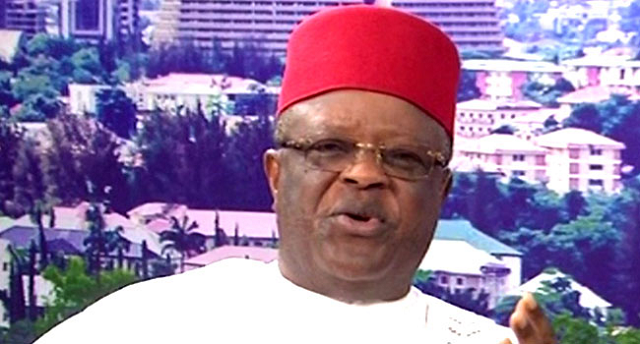In a recent statement, Minister of Works, David Umahi, clarified the cost of constructing the Lagos-Calabar coastal highway, asserting that it amounts to N4 billion per kilometer, contrary to former Vice President Atiku Abubakar’s reported claim of N8 billion per kilometer.
Umahi emphasized that the project, estimated to total N2.8 trillion upon completion, is proceeding according to due procurement processes. He addressed these points during an appearance on the Television Continental News Hour program in Lagos.
This clarification comes in response to Atiku Abubakar’s questioning of the contract awarded by the President Bola Tinubu administration to Gilbert Chagoury’s Hitech without competitive bidding. Atiku challenged the administration to disclose the full cost of the Lagos-Calabar highway project.
Umahi defended the project’s transparency, stating that it was awarded on a counter-funding basis rather than a Public-Private Partnership, as claimed by some. Despite challenges such as commodity price inflation and supply chain disruptions impacting construction costs, Umahi assured the public of the ministry’s commitment to fiscal responsibility.
The minister revealed that the project, designed to feature a four-lane carriageway with concrete pavement, is estimated at N4 billion per kilometer. He clarified that although N1.06 trillion was appropriated, the entire sum had not yet been disbursed.
Umahi addressed discrepancies in cost calculations, highlighting modifications in the project design and the inclusion of additional lanes and infrastructure. He underscored the necessity of concrete pavement for the coastal route’s durability, especially considering the challenging terrain.
Regarding the project’s financing model, Umahi emphasized its classification as an Engineering, Procurement, Construction, and Finance program, akin to the approach employed for the Abuja-Makurdi road project. He clarified that this arrangement involves negotiated counterpart funding, differing from a Public-Private Partnership.
However, earlier statements from Umahi indicated that the project would be executed under a Public-Private Partnership model, with Hitech Construction responsible for funding. These statements contrast with his recent assertions regarding the project’s financing and procurement processes.
Despite this discrepancy, Umahi assured adherence to procurement regulations and highlighted the selection of Hitech Construction based on their expertise. He compared the process to previous instances where specialized companies were invited to bid for specific projects, emphasizing compliance with due process.
As discussions surrounding the Lagos-Calabar coastal highway continue, Umahi’s clarifications provide insights into the project’s cost, procurement, and financing mechanisms, shedding light on its progress and management under the Ministry of Works.












